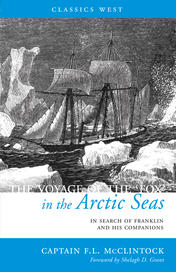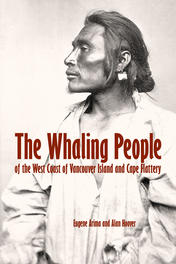General

The Voyage of the 'Fox' in the Arctic Seas

A Burst of Growth
As calendars click over to 1900, B.C., Canada and the world enter an era of enormous change. The first decade sees breakthroughs such as the Wright Brothers' first manned flight, Marconi's first trans-Atlantic wireless signal and Einstein's first steps in atomic theory.
In B.C., it is a time of unprecedented growth, with Vancouver rising from the ashes of the 1886 fire and blossoming to more than 25,000 people by 1900.
The inner mind is also under the public microscope as psychologist Sigmund Freud tells us that dreams are the "royal road to the unconscious" in his 1900 book The Interpretation of Dreams.
As Canada's population reaches 5,371,315 in 1901, in Trenton, N.J., the Eastman Kodak Co. incorporates to produce Kodak cameras and photographic supplies. The Kodak Brownie sells for $1.
What's believed to be Canada's first permanent cinema, the Edison Electric Theatre, opens in Vancouver in 1902.
The first sign of a labour movement that would become a hallmark of the B.C. workplace is seen among fishermen sailing from ports along the Fraser River and in the coal mines on Vancouver Island.
The Tories, led by Richard McBride, win the 1903 B.C. election. His enemies dub the 33-year-old 'Glad-Hand Dick' but his affable manner wins him friends at home and in Ottawa.
McBride faces an early test, just 17 days into his term, with the Alaska Panhandle boundary dispute. Indignation runs high in B.C. when the British representative on an international tribunal sides with the Americans over inlets Canada is claiming.
McBride condemns the decision, which later is credited with turning many B.C. residents from thinking of themselves as British to being full-fledged Canadians.
The issue of women's rights - particularly the right to vote - gains a high profile around the world. In 1903, Emmeline Pankhurst founds the Women's Social and Political Union in London. She campaigns under the slogan Votes for Women and she and her followers chain themselves to railings as part of their campaign.
Meanwhile, Madame Marie Curie discovers radiation and becomes the first woman to win a Nobel Prize.
In Toronto, in 1907, Canada Dry ginger ale is patented by chemist and pharmacist John J. McLaughlin.
And in 1909, Canadian Tommy Ryan invents five-pin bowling, which now claims to be "Canada's largest participant sport."
-written by Damian Inwood

The Whaling People of the West Coast of Vancouver Island and Cape Flattery







